The Early Days
Now that you’re a new parent, you’ll need a few more members on your team. It really does take a village.
In Our Own Voices: Sources of Support

Custody and Support
Read along or listen to this section using the audio player.
It’s easy to understand that most mothers want to take their babies home with them as soon as they leave the hospital. It can be very painful to even think about spending some time apart from your baby or having to go to court to decide where will be the best place for your baby. It is more important now than ever to have a close and supportive treatment provider or recovery coach by your side as you go through this process, and maybe even as you go through this Journey Stop. Remember, tons of women have gone through this.
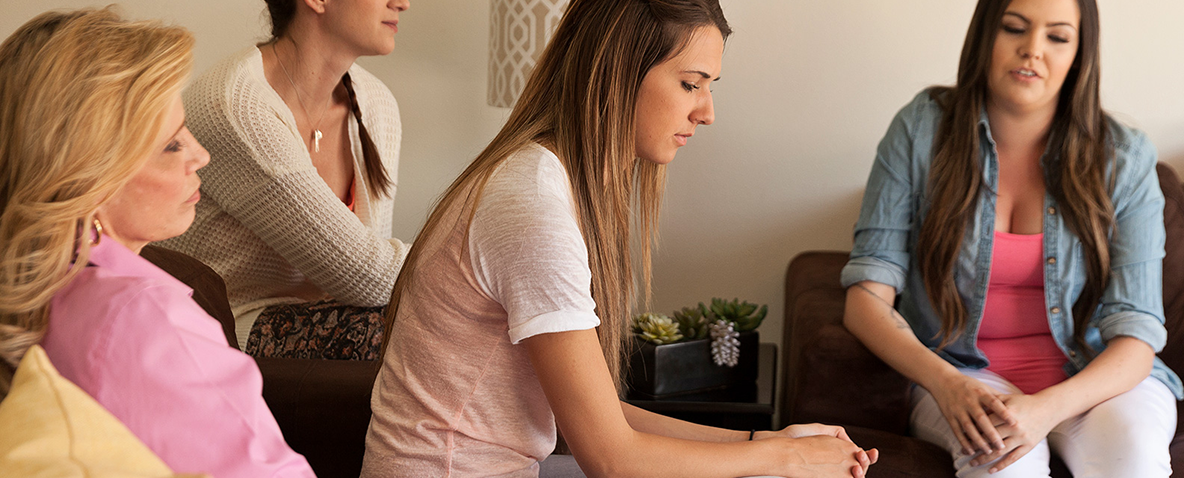
Getting Ready to Be a Mom
Read along or listen to this section using the audio player.
There are a lot of ways to parent your child. In some cases, it’s the best idea to take your baby straight home with you, and in other cases it’s the best idea for your baby to spend some time in a different home, while you are getting ready to be a strong, sober mom.
Some women, especially ones who weren’t able to get into treatment or prenatal care until later in their pregnancies, need a little more time after baby is born to get ready. That’s okay. Your baby is going to have a very long life, and you will always be their mom. Take the time you need now to get ready, so if baby does come home with you, you’ll feel stable and prepared.

Plan the effort, not the outcome
Read along or listen to this section using the audio player.
If you end up not taking care of your child right away, that doesn’t mean you are not their mom. Many moms begin parenting their children later on, and a lot of them say that the work they’ve done on themselves and for their recovery before they had custody made it possible for them to be the parents they are today. Don’t lose hope, no matter what your situation is. In recovery groups, you often hear “Plan the effort, not the outcome.” That means, you don’t know yet what will happen in the future. For now, working on your recovery, as much as you’re able, is a really good idea no matter what happens down the road.
Even if you’re not sure what will happen after baby is born, it’s a good idea to get ready to parent a newborn. Here are some tips to get you started.
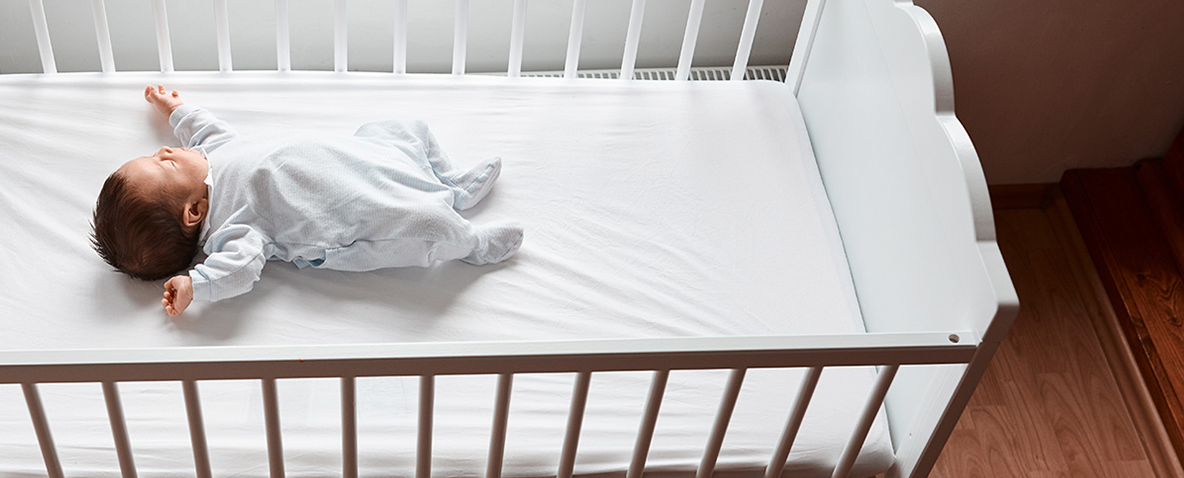
Home
If you are planning to parent your newborn, here are some tips to get ready for baby.
Here’s a checklist to make sure your home is ready for baby:
Do you have a stable place to live?
Is there a place where baby can sleep safely, in a separate, empty crib?
Are the people you’re living with safe to have around baby?
If you need help figuring out if your home and relationship are safe, start here with this Safety Checklist.
Read along or listen to this section using the audio player.
The first thing to think about is whether you have a safe and healthy home for baby. Think about the relationships in your home: are they loving and safe? How about the people who come to your house frequently, are they good people to have around a new baby? Is there a quiet place at your house, in case you are still helping your baby recover from neonatal abstinence syndrome? Is there a place where baby can sleep safely, in a crib or bassinet by themselves, without pillows, toys, or blankets?
If you need help with housing or relationship safety, check out our Resources Section.
In any home where you will live with your baby, it will be important to have:
- hot water
- a refrigerator for milk or formula
- a safe sleep environment, where baby can sleep in a crib by themselves, with only a firm mattress and tight-fitting sheet
- a car seat or baby carrier for outings
There are family resource centers across the state that can help you get some of these things. They are listed in our Resources Section.
Listen to this section using the audio player.
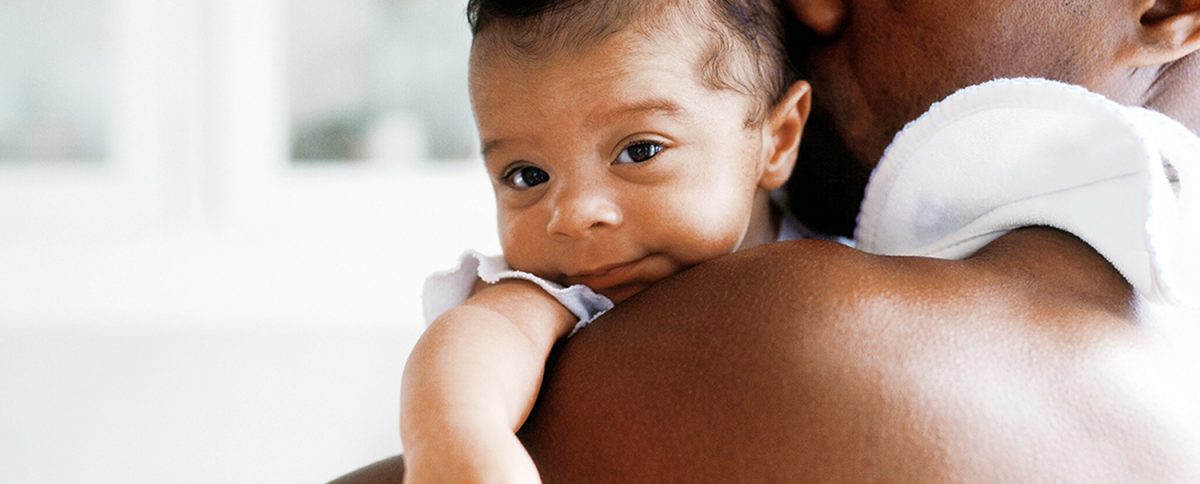
The Parenting Journey
Remember:
- Put your recovery first
- Take breaks
- Take it one day at a time!
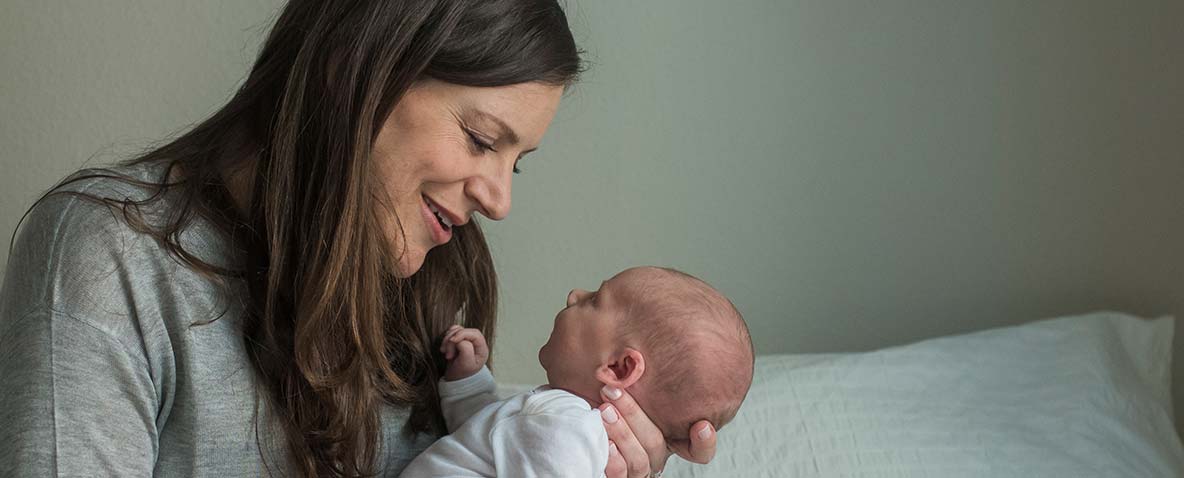
Get to Know Your Baby
Be curious. Listen by watching your baby. Talk back!
Read along or listen to this section using the audio player.
A really good way to get to know your baby is to be curious. Even though they’re small and can’t talk yet, your baby is actually a whole little person. Babies begin to communicate with their parents right after birth. Spend a few minutes just looking at your baby. Watch them move their arms and legs, see if you can see them pucker their lips, or suck on their hand, to tell you that they are hungry. Begin to communicate back with your baby. Talk to them. Tell them you notice when they’re talking to you, and tell them that you are going to meet their needs. Your baby already knows your voice from spending all of that time in your belly. Keep talking to them now. This will help them learn and it will be the foundation of a good relationship between the two of you. This is true even if you are just visiting your child for a short amount of time. More than lots of presents or pictures, a few good moments of stillness and curious attention can be exactly what you and baby need.

Building Support
Take breaks, ask for help, and remember to put your recovery first.
Read along or listen to this section using the audio player.
If you are parenting full time, it’s a really good idea to lean on a partner or close support person. New moms often miss out on sleep, and it’s always okay to let someone else take a turn with baby if you need a nap. Also, if your baby is upset and you can’t figure it out and you’re getting frustrated, put the baby down in a safe sleep position and take a break. Your baby is safe in their crib, and it’s more important right now for you to soothe yourself than to get your baby to stop crying. Some babies just cry a lot. It’s not too much fun, but it is temporary. Take it easy on yourself.
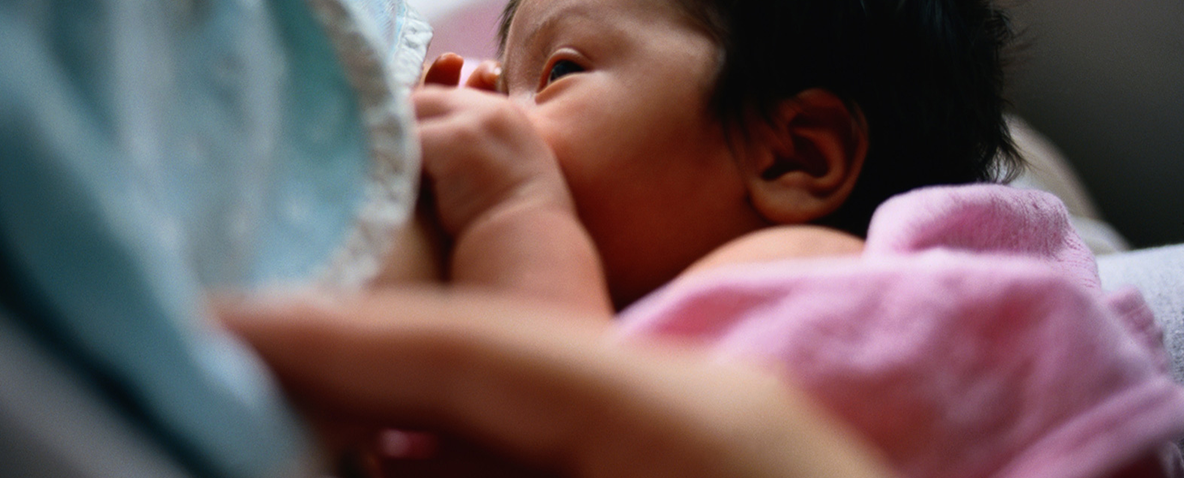
Caring for Baby
Stick to the basics.
- Swaddling
- Skin-to-skin contact
- Low light and sound
And if your baby is having trouble with ESC:
E ating
S sleeping
C being consoled
Call your baby’s doctor or nurse.
Read along or listen to this section using the audio player.
It is possible, if your baby had symptoms of neonatal abstinence syndrome (or NAS) after birth, that they will continue to show mild signs of NAS for their first six months of life. That doesn’t mean that anything is wrong, it is just a reminder that the same things that comforted your baby right after birth (things like swaddling, low light and sound, and skin-to-skin contact with a parent) are also important now. If you find that your baby is having a hard time with eating, sleeping, or being consoled, call your baby’s doctor or nurse.
Safe sleep is a special way of putting your baby down to sleep that makes sure they can breathe and won’t fall while they are sleeping. It is so important to practice safe sleep every time your baby goes down, both at night and for naps. If you feel sleepy, do not hold your baby on a couch or adult bed. Put the baby down safely first, and then you can rest.
The safest way for a baby to sleep is on their backs in an empty crib.
Make sure their crib has only a firm mattress and a tightly-fitted sheet: no toys, no blankets, no bumpers!
Make sure the sleep environment is quiet, smoke-free, and not too warm.
There are more safe sleep tips on this handy Door Hanger from the Department of Public Health (DPH) and in the Resources Section.
Breastfeeding has so many benefits! It is the healthiest food for your new baby, it helps your baby build strength and stay healthy, and it can help reduce symptoms of neonatal abstinence syndrome, especially if you are taking medications to assist your recovery from substance use disorder.
If you are breastfeeding, it’s so helpful to get support from a lactation consultant or counselor. The hospital and the Women, Infants, and Children (or WIC) program can connect you with a lactation counselor for free.
Read along or listen to this section using the audio player.
For about the first six months of life, babies can live entirely on breast milk or formula without any solid food. Breast milk is the best choice because it’s the healthiest food for babies, it’s free, and it’s always available. Breast milk contains a mother’s antibodies, which protect babies from developing allergies and help them build defenses against childhood illnesses. It can also help a baby recover from neonatal abstinence syndrome more quickly. And it’s a great way for mom and baby to connect and form an important attachment.
There are many reasons to breastfeed, but it is a decision that each woman should make for herself, with guidance and information from her trusted providers.
When making this decision, it’s important to consider several things:
- What medications (prescription and over the counter) and other substances (including alcohol, marijuana, and products with nicotine) are you taking?
- Do you have a history of viral infection, such as HIV or hepatitis C?
- Have you had breast cancer or breast surgery in the past?
- Do you have a trauma history that may make breastfeeding uncomfortable for you?
These factors do not mean you can’t breastfeed, they are simply things that you should share with your provider when you are making your decision. Your birthing hospital, your lactation coach, or the WIC program can help you get all of the information you need to make the right choice for you.
You can also check out the breastfeeding information in our Resources Section.
Work with your baby’s doctor, nurse, or WIC nutritionist to learn how to choose, prepare, and feed your baby with formula.
Read along or listen to this section using the audio player.
If you decide not to breastfeed, for whatever reason, make sure you get help finding the right formula and learning how much to feed your baby. If you need help purchasing infant formula, the Women, Infants, and Children (or WIC) program can help by providing a supplemental supply. Work with your baby’s doctor, nurse, or WIC nutritionist to learn how to safely prepare, store, and feed the formula. Newborn’s have tiny tummies and their immune systems are very sensitive, so it is very important that formula is prepared safely and given in the right amounts.
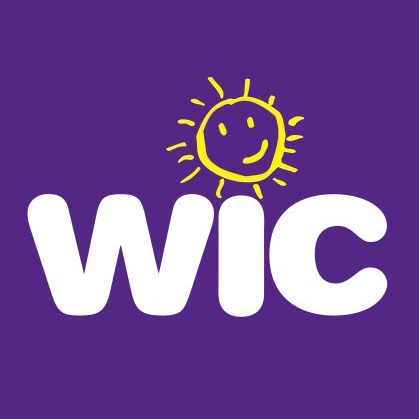
The Women, Infants, and Children (or WIC) program offers free nutrition support to some women in Massachusetts. Until your youngest child is five years old, WIC services include:
- breastfeeding counseling
- free breast pumps
- work and school planning help
- support classes
- food vouchers during pregnancy
- Mother-to-Mother Peer Counseling Support
More information on WIC is in our Resources Section.
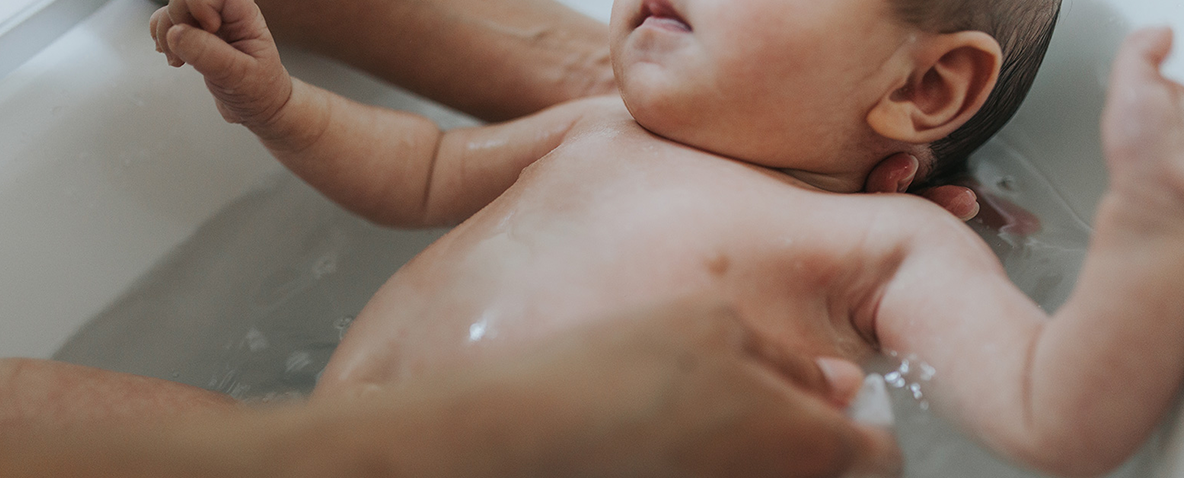
In-Home Support
There are a range of programs in Massachusetts that offer in-home services. Here are a few examples.
It can be hard to get out of the house with a new baby. In-home services bring providers or support people to you! There are different kinds of in-home services that help with different things, including nursing care, child development, support and education for parents, and more!
We outline a few types of in-home services on this slide; more information can be found in the Resources Section.
Ask your hospital if it offers a visiting nurse program, or other home visiting programs. Even if you’ve had children before, these visits can be very helpful in answering questions about your baby’s health, growth, or feeding habits.
Early Intervention (or EI) is a free home visiting program for infants and toddlers that provides family-centered services that support your child’s development. Your family is automatically able to receive EI services if your baby had a diagnosis of NAS after birth, or if certain family factors are present. EI is voluntary and can be a really good way to work on a family service or treatment plan, if you have one.
You can ask the hospital, your baby’s doctor, or a social worker to refer you to EI. Also, you can call the EI office yourself. To learn more about EI, call the Central Directory at 1-800-905-8437, or visit www.massfamilyties.org for a listing of EI programs in your city or town.
Other home visiting programs are available in Massachusetts. The Massachusetts DPH website has more information or ask your treatment provider what’s available in your area.
Read along or listen to this section using the audio player.
Other home visiting programs are also available in Massachusetts, including special programs for young moms, new moms, moms in recovery, and moms in certain cities or towns. Many of these programs can begin working with women while they are still pregnant. This can be a really good way to get ready for parenting and to show the preparations you’re making to take care of your baby. The Massachusetts Department of Public Health website has information about these home visiting programs.
You can also ask your treatment provider what’s available in your area, or ask other women in your support community. Even if you have a supportive partner, family, or friends, it can be nice to have someone that’s just there for you and your baby. This service is always optional, so you can end it, or ask for a different home visitor, at any time.

Parenting is a lifetime job
It’s a tough job.
Be gentle with yourself;
no one does it perfectly.
You are good enough.
Read along or listen to this section using the audio player.
Parenting is a lifetime job. It is probably going to be the hardest and also the most rewarding thing you ever do. Whether you have custody right away, or whether you begin the work of parenting later in your child’s life, you are still the parent. There are lots of ways to parent, but the best way is to make sure your child is safe and happy and healthy.
Be gentle with yourself. Take it one moment at a time. And relax. No one does it perfectly. All it takes is to be good enough. And you are good enough.
I am strong
You’ve finished this milestone.
These are the resources mentioned in this module:
